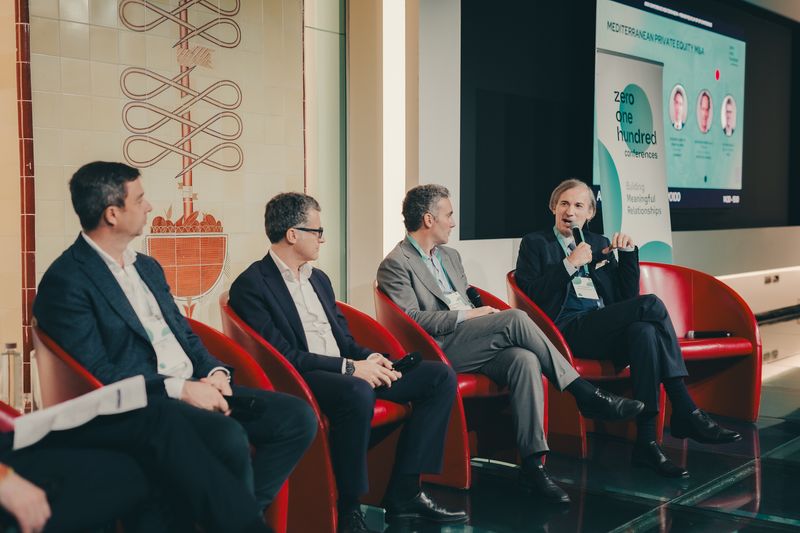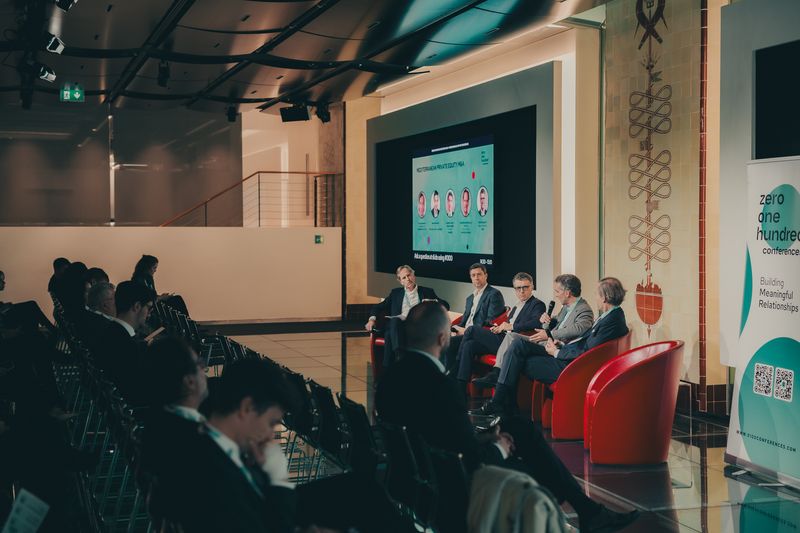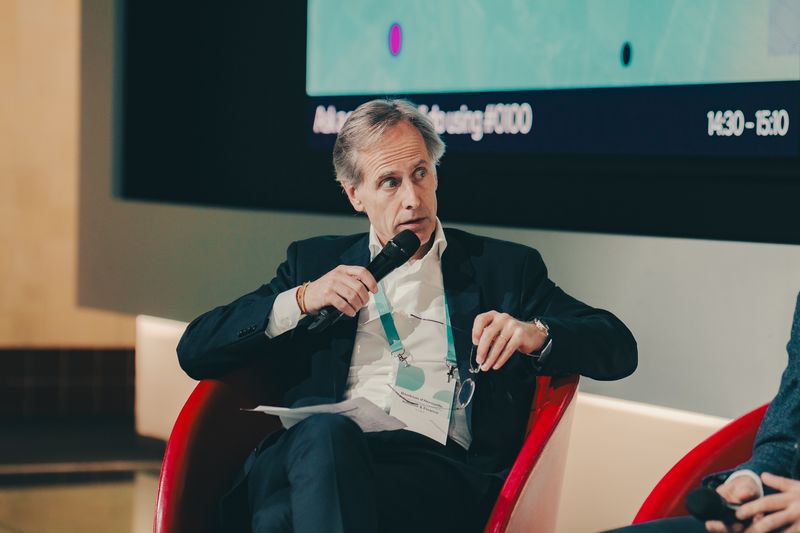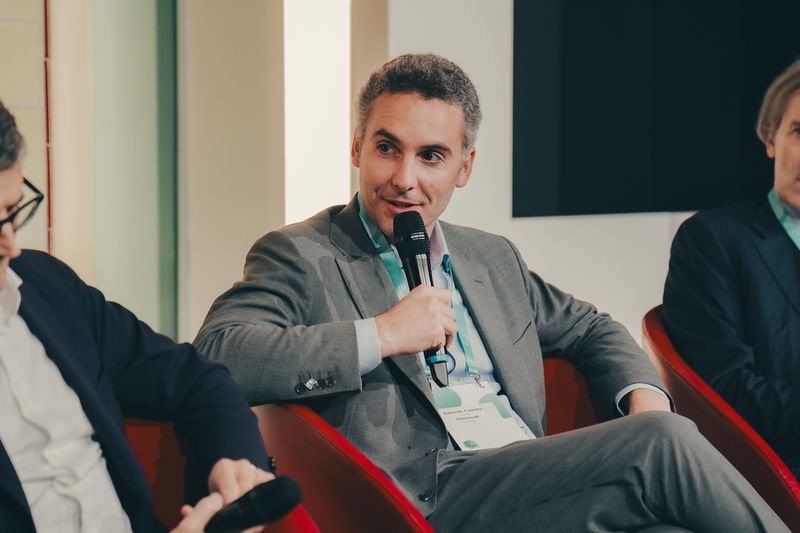The "Mediterranean Private Equity M&A" panel at the 0100 Conference Mediterranean in Milan brought together seasoned experts in the industry to explore the unique dynamics, challenges, and opportunities shaping the private equity (PE) landscape in the Mediterranean. Moderated by Baudouin d’Hérouville, Partner and Head of Midcap at Initiative & Finance, the panel included prominent figures like Danilo Mangano, Chairman & CEO of Xenon Private Equity; András Molnár, CEO of Portfolion Capital Partners; Edoardo Canetta Rossi Palermo, Partner at CHIOMENTI; and Stefano Ghetti, Senior Partner at Wise.

Deal Sourcing in a Competitive Landscape
The panel kicked off by discussing the approaches to sourcing deals in a competitive market. Danilo Mangano and Stefano Ghetti shared insights on the evolving deal landscape in the Mediterranean, where identifying "hidden gems" is more achievable than ever. Mangano noted that patience and long-term relationships are essential to Xenon’s investment strategy, with some deals taking years to incubate. He described the firm’s reliance on informal networks and referrals from local intermediaries as part of a strategic approach to deal origination.
Ghetti highlighted how Wise Equity has adapted its sourcing model by maintaining connections with local advisors, lawyers, and even private bankers. This network not only facilitates access to local businesses but also aligns with the interests of entrepreneurs seeking liquidity events. Ghetti also noted that Wise's extensive network of former managers and contacts within Italy’s mid-market segment has proven effective in uncovering unique opportunities.
The Evolving Role of Debt in Financing
In the current post-pandemic and inflation-impacted market, access to credit has become a key factor in private equity deals. András Molnár addressed how debt accessibility differs across Europe, noting that while countries like Italy have historically embraced debt financing, Central and Eastern European markets still lag behind. Edoardo Canetta echoed these observations, describing how PE funds have adjusted to higher interest rates by increasing equity portions in transactions. He pointed out that this adjustment is coupled with an increased expectation for sellers to reinvest in deals, creating more equity-heavy structures.

Family-Owned Businesses: Cultural and Operational Considerations
Family-owned businesses form a significant portion of the Mediterranean economy, presenting both opportunities and challenges for PE firms. Mangano described how Xenon typically retains the founder as CEO during integration processes, especially in cases where the founder’s influence and relationships are vital for operational continuity. Ghetti shared Wise’s slightly different approach, often preferring to bring in professional managers over time while allowing founders to remain engaged for one or two years. Both panelists noted that, over recent years, the cultural hesitation among family owners to partner with private equity has diminished, making such transitions smoother.
Integrating ESG into Private Equity Deals
As ESG criteria gain prominence globally, the panel addressed the complexities of incorporating these standards into private equity transactions within the Mediterranean. Edoardo Canetta highlighted how ESG frameworks vary widely across funds, industries, and even within the same PE firm. He emphasized that although ESG frameworks are becoming standard in the industry, effective execution remains a work in progress.
András Molnár added that ESG compliance is often regulation-driven and investor-dependent, making it challenging to align these factors with financial returns. Both Canetta and Molnár agreed that clear, measurable ESG goals tailored to each portfolio company’s industry are essential for tracking progress and maintaining alignment with investors’ priorities.

Management Incentives and Alignment
The panel explored how private equity firms structure management incentives to align the interests of investors and management teams. Ghetti explained that Wise uses simple structures, emphasizing that managers should invest a substantial portion of their own wealth into the company. For managers, incentives are tied to achieving specific performance metrics, including the potential for enhanced returns if they meet set targets. Mangano also noted that at Xenon, incentives often extend beyond the top management, reaching 10-15% of the workforce to encourage a firm-wide commitment to performance.
The Importance of Timing in Exits
With current economic and geopolitical uncertainties, exit timing has become a critical consideration. Both Mangano and Ghetti emphasized the importance of preparing comprehensive exit documentation and being responsive to market conditions. Mangano noted that while exits are taking longer to execute, private equity firms must balance patience with preparation, ensuring that potential buyers have a clear understanding of the asset’s long-term value.

Future Directions: Defense Industry and Cross-Border Exits
A lively discussion emerged around the potential for private equity in the defense sector, particularly given the recent geopolitical shifts. The panel acknowledged that, while defense was traditionally outside the scope of ESG-compliant investments, the current landscape may drive more flexible ESG policies, potentially allowing for investment in defense-related technologies.
Regarding cross-border exits, Canetta explained that selling Mediterranean assets to European buyers has become much more straightforward, with limited legal or cultural barriers. However, cross-border deals involving U.S., South American, or Asian buyers may still require additional negotiation and cultural alignment, particularly when it comes to deal structures and governance standards.




